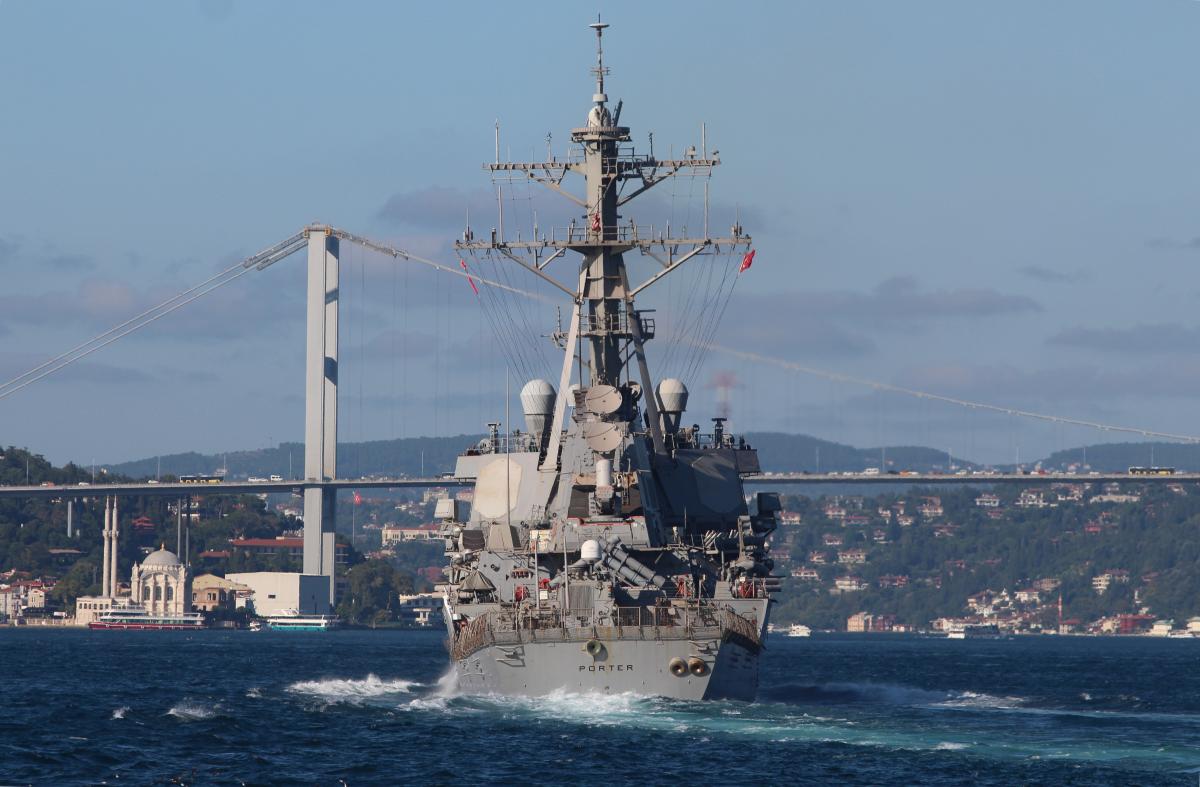
The Arleigh Burke-class destroyer USS Porter (DDG 78) entered the Black Sea June 19, 2020 to participate in exercise Sea Breeze 2020.
"This is Porter's third trip to the Black Sea since the beginning of 2020. During its previous trips to the region, Porter participated in multiple tactical maneuvering, communications, and air defense exercises with regional partners," U.S. Naval Forces Europe-Africa/U.S. 6th Fleet said on its website on July 20.
Sea Breeze, now in its 20th iteration, is an annual exercise held in the Black Sea co-hosted by Ukraine and the United States. The exercise will focus on multiple warfare areas including air defense, anti-submarine warfare, damage control, and search and rescue.
U.S. participating units include the Arleigh Burke-class guided-missile destroyer USS Porter (DDG 78), one P-8A Poseidon from Patrol Squadron (VP) 47. In total, approximately 400 U.S. Sailors are expected to participate.
"These exercises will allow us to learn and grow from our partner nations, increasing our interoperability and overall effectiveness as a fighting force," said Cmdr. Craig Trent, commanding officer of USS Porter.
Read alsoSea Breeze 2020 drills start in Ukraine on July 20
Sea Breeze 2020 is scheduled through July 26 and involves more than 2,000 personnel from nations such as Bulgaria, Georgia, Norway, Romania, Spain, Turkey, Ukraine, and the United States. NATO Standing Maritime Group 2 under the authority of NATO Maritime Command will operate alongside all participating nations in the Black Sea.
The exercise will focus on multiple warfare areas including maritime interdiction operations, air defense, anti-submarine warfare, damage control, and search and rescue operations.
"By participating in Sea Breeze, we demonstrate our shared commitment to our NATO allies and regional partners," said Trent.
This year's exercise builds on the foundation of previous iterations to provide unique training opportunities designed to enhance readiness, improve collaboration, and interoperability.
"It's always exciting being a part of such large scale operations," said Quarter Master 3rd Class Hunter Hazlett. "It makes you feel as if you're involved in something bigger than yourself."
This is an annual exercise designed to enhance interoperability among participating nations and strengthen regional security. The exercise began in 1997, bringing Black Sea nations together to train and operate with NATO members to build interoperability and increase capability.

